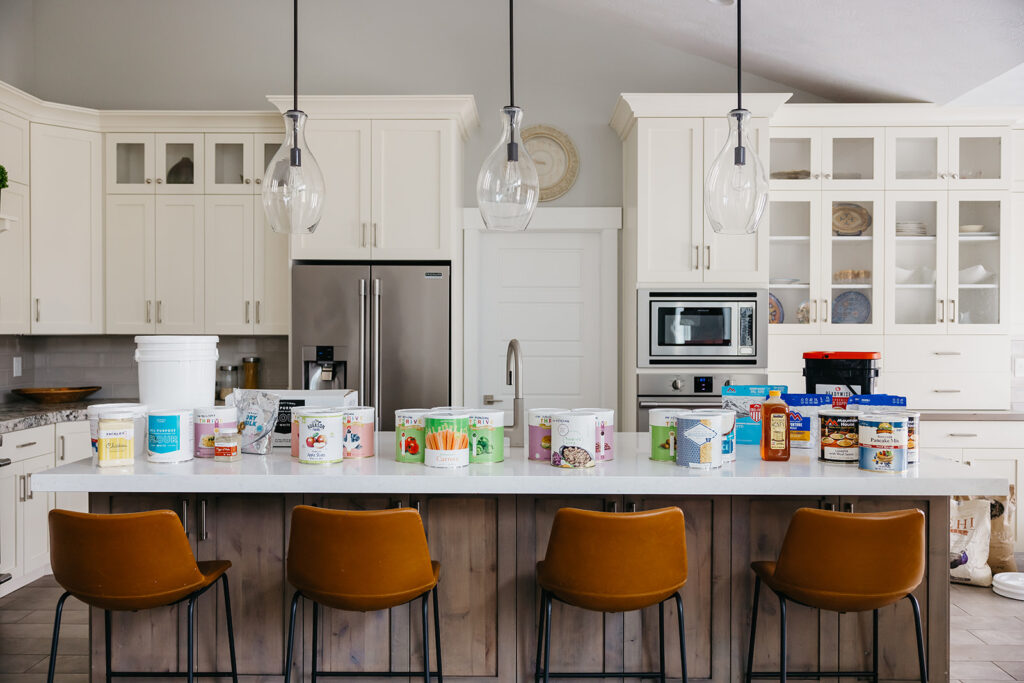Long-term food storage is going to consist of foods that have a long shelf life – up to 30 years if stored properly! Common long-term items include wheat, white rice, beans, and freeze-dried or dehydrated foods. These are foods that you won’t be rotating through as regularly as in your short-term food storage, but are great items to have in the event of a prolonged disaster or even that disrupts the local or global food supply.
We recommend storing a year’s supply of long-term food storage. This may seem overwhelming and like a TON of food, but we promise that by using our system, is is way ore doable than you realize! However, if a year’s supply is not possible for your family, that is okay! Do what feels right for you, and what works for your budget and home.

Long-Term Food Storage Options
There are a variety of long-term food storage options available. If you are interested in learning about more of the options, this post is helpful! These include pre-made meals that just need water, to bulk ingredients you can use to create your own meals with.
When building a long-term supply, it is wise to have a variety of options. Not knowing what the circumstances will be when needing to rely on your food storage requires that you think through and plan for different possible scenarios you may encounter.
Having meals you can take with you ON-THE-GO (like we talk about in our water guide) or AT-HOME (where cooking and creating meals using your bulk ingredients is possible) will give you the flexibility you desire.
How To Plan Long-Term Food Storage Meals
If you are going to store bulk ingredients, we recommend planning which meals you’ll be able to make. Just like we did with your short-term food storage menu. Choose 7-14 meals for breakfasts, lunches, and dinners. Use these free menu printouts to write down all the ingredients you would need to make those meals. The next thing you will need to do is make sure all the ingredients can be stored in long-term storage. There are items that are harder to store for prolonged periods of time, so think about what substitutes could be made for any needed ingredients. For example, if a recipe calls for eggs you could store egg powder.
Once all your meals are planned, begin purchasing! Here we walk you through purchasing a complete food storage using our unique system.
Tip: It is important when storing your own foods to do it properly. This post will walk you through how to safely package your own long-term foods.
Comments +